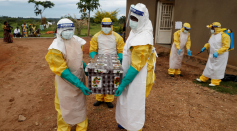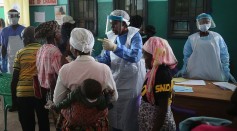Guinea
Marburg Virus First Case Confirmed in Guinea, Fruit Bats Host What WHO Tags As 'Highly Dangerous' Disease
WHO Announced the End of the Second Ebola Outbreak in Guinea that Claimed 12 Lives

Latest Ebola Outbreak May Have Started With Someone Infected Years Ago, Experts Say

7 Cases of the Ebola Virus Confirmed in Guinea
U.N Says Ebola Outbreak Could Be Gone By the Summer
Healthcare Workers Attacked in Guinea as Locals Give Ebola the Upper Hand
Could Killing the Bats End New Ebola Transmission? Why Death Won’t Work
Health Officials Believe They May Have Found Source of Newest Ebola Outbreak
WHO Reports More Than 5,000 Deaths From Ebola as of Nov. 9
First Ebola casualty was a boy from Guinea, researchers say
WHO Predicts Ebola Outbreak Could Worsen by 1000% as Soon as December
Most Popular

How Technology Is Changing the Real Estate Industry?

How a Plant-Based Diet Can Protect Against Breast Cancer: Insights from Nutrition Research

Study Reveals High Turnover in Scientific Research Careers: What This Means for Future Scientists

Why It's So Difficult to Lose Weight: The Biological Explanation Behind Obesity






